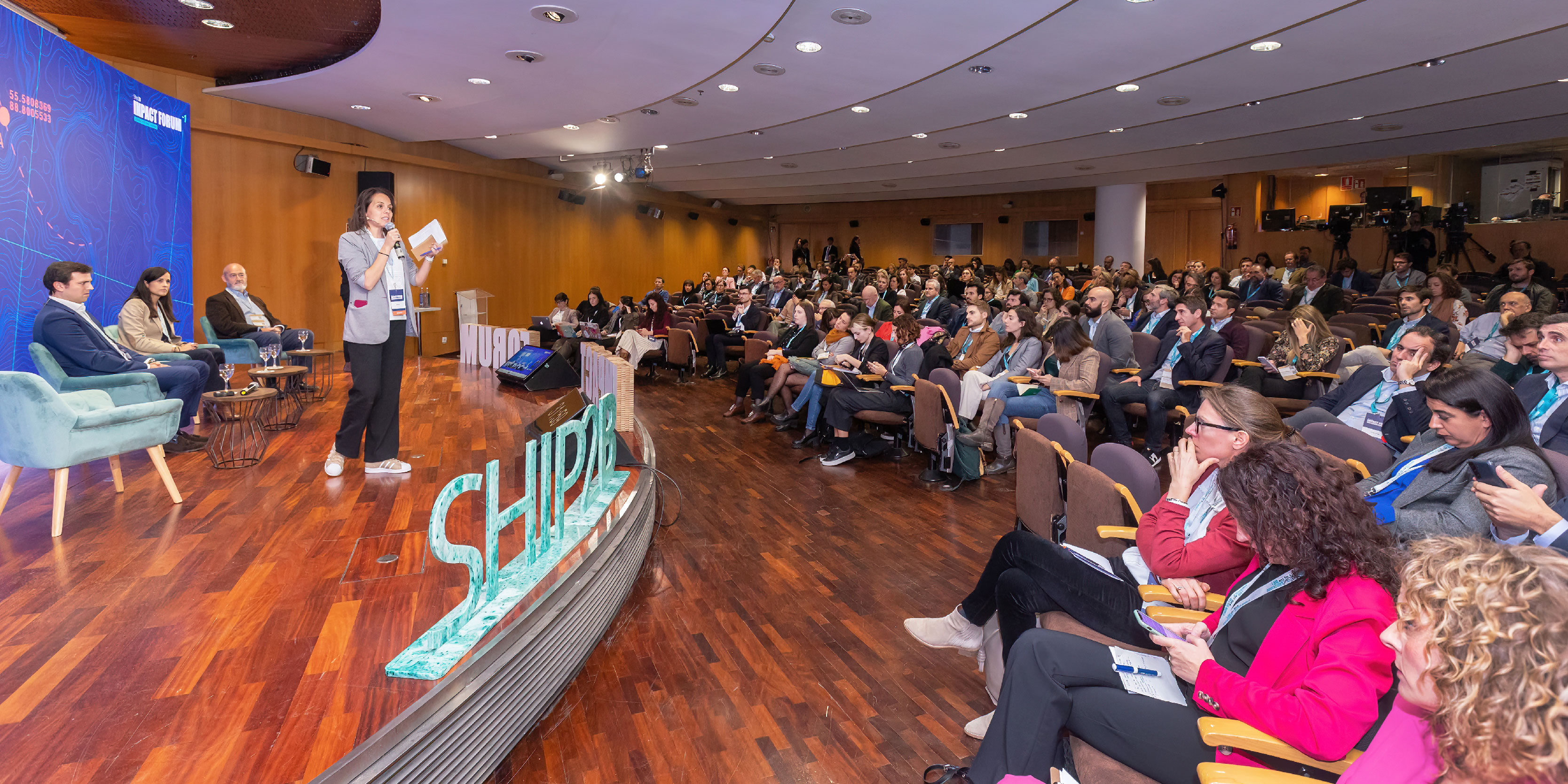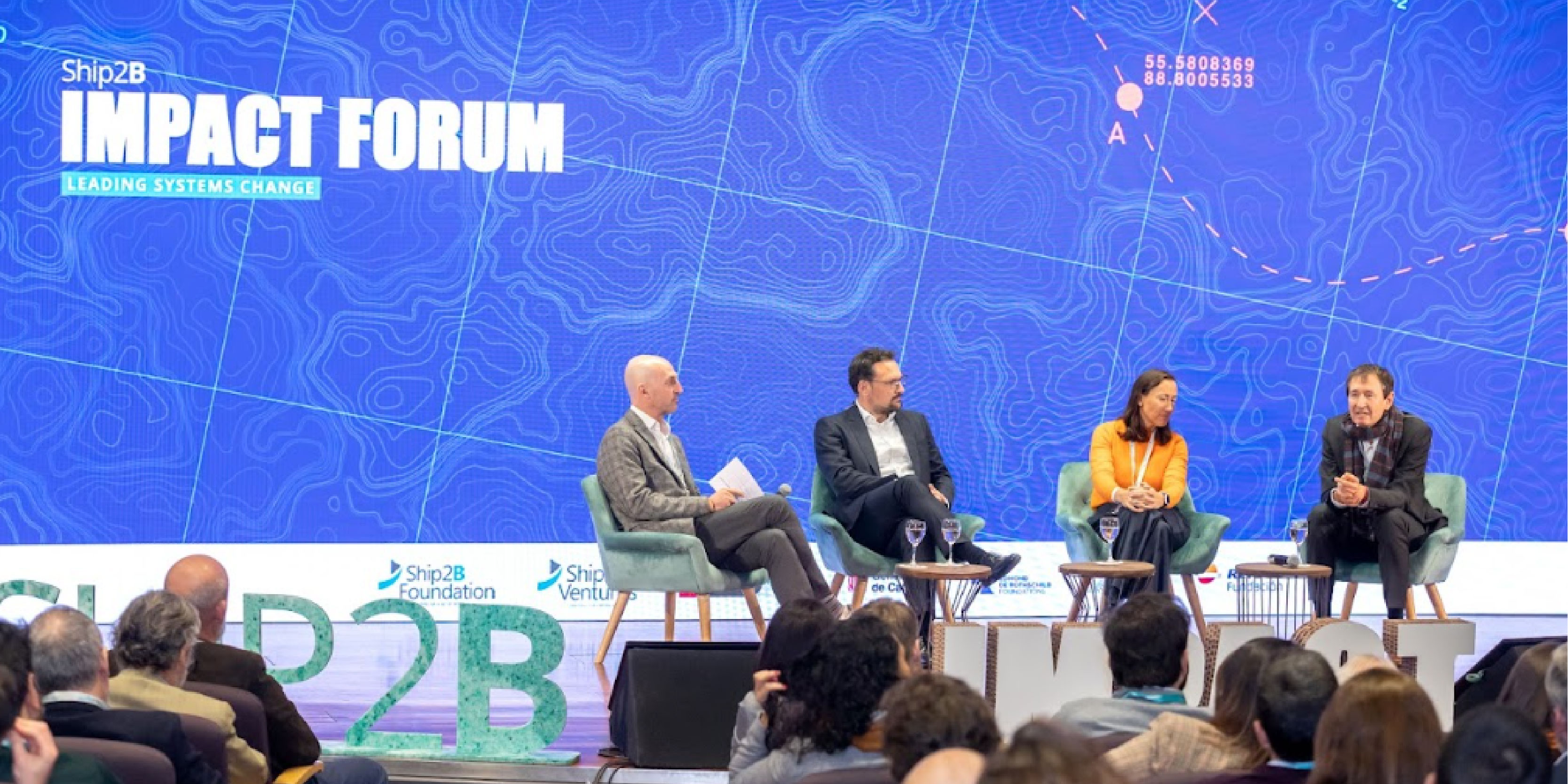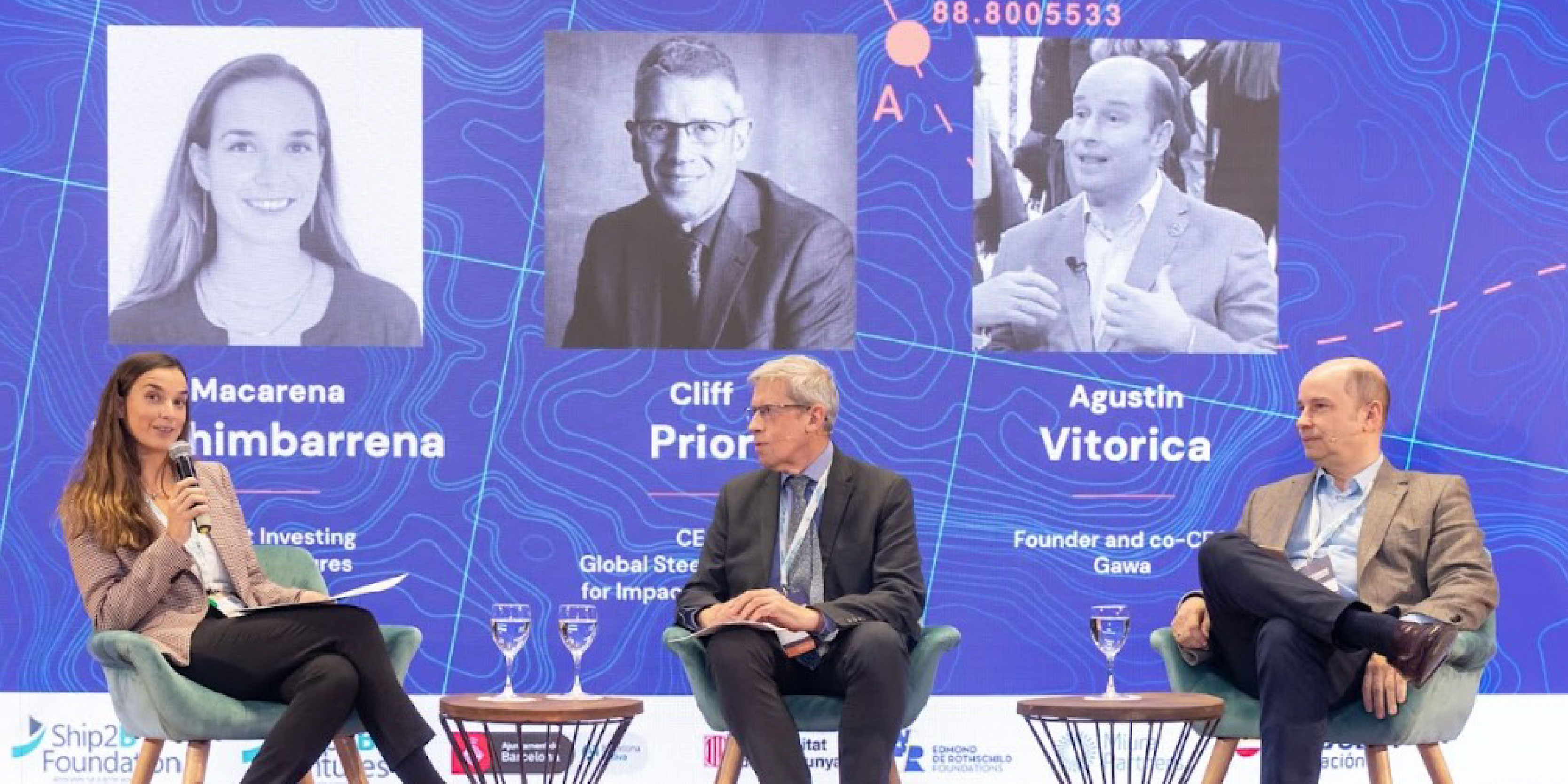
This IX edition of the Ship2B Impact Forum organized by the Ship2B Foundation has brought together more than 30 top-level speakers to, among other objectives, expose the need for companies to take the lead in terms of impact economy. On this occasion, the President of the Generalitat de Catalunya Pere Aragonès participated, who highlighted in his institutional speech the forecast that the Iberian Peninsula will be one of the most affected regions by the impact of climate change, due to that, it is vital that it adapts its development model to make it viable despite the drawbacks that arise.
The three panels of the plenary sessions led by Ship2B Ventures have been moderated by Xavi Pont, Maite Fibla as co-founders and managing partners and Macarena Machimbarrena, Strategy Lead and investment associate. Relevant figures from impact investment have participated in them, who have shared opinions and revealing data with the rest of the participants and with the audience, who followed the event on-site and via streaming.

In this sense, in the Scaling Investment Panel, Uli Grabenwarter Deputy Director Equity investments of the EIF has urged decision-making and action since, “If we keep the system working as it is, we are only delaying the apocalypse.” Likewise, when asked by Xavi Pont, he underlines the need for capitalism to aim at social progress, as well as a change of focus to go beyond investment opportunities and focus on priority needs.
“We need more harmonization in terms of impact measurement”, says Michael Viehs Global Head of Sustainable Investing at Partners Capital and emphasizes that it is necessary to identify a company’s theory of change in order to detect cases of greenwashing. Cristina Marsal, Founding Partner and CEO of Sandman Capital Partners recalls in the same session that “Return is not only measured with numbers”. In the same way, she urges us to be responsible for the way we live and the ways in which we invest.

On the question raised in the session moderated by Macarena Machimbarrena about whether impact investment can save us from the upcoming crisis, the CEO of Global Steering Group for Impact Investment Cliff Prior argues that “this is the first recession for the impact movement, we are still teenagers trying to figure out how to do it.” and continues “we used to be activists and now we are in charge of decision making.” He also shares that, from his point of view, the voice of the community must be heard to make a fair transition and achieve actions that achieve change.
For his part, Agustin Vitórica, founder and co-CEO of Gawa, highlights: “The impact should last even after the investment has left.” Likewise, he highlights the need to transform social enterprises, since not all of them are ready to solve the problem. He also underscores his belief in the transformative power of impact investing. In the same way, he believes that combined financing will be key to ensuring equity: “We need to find solutions to put adaptation and mitigation assets in those who really need them. We need a way to find a way to reach capillarity in this area of the population”.
Lastly, in the round table dedicated to ESG investment, Maite Fibla, together with the other speakers, reflects on whether ESG investment can really help us transform the current capitalist system, combat climate change and favor a much fairer and more equitable growth or, conversely, ESG investing falls short of truly achieving real impacts.
In conclusion, the speakers seem to agree that ESG continues to have great potential to contribute to solving some of the social and environmental problems that we have as a society and perhaps the problem lies in how this strategy has been implemented in the companies themselves. Some even use it as a mere “marketing” tool, clearly falling into greenwashing cases. In the case of Guillermo Hermida, director of ESG Strategy at Caixabank, he states: “ESG is already part of the general DNA of investment management. We have to take the leap to see how we implement the impact.” He also declares that if the costs of externalities are externalized, there is no longer a trade-off between profitability and impact.
For her part, Esther Sarsa Sustainability Partner from Miura highlights: “There must be funds to solve socio-environmental problems, but there must also be a market that minimizes the negative impact and maximizes the positive.” Likewise, she values the importance of measuring impact, especially when we talk about the impact generated directly by the company’s own activity. Sarsa emphasizes the difficulty of this measurement, but instead it is this direct impact that can generate the greatest value for society and the planet, which is why it is very important to find the mechanisms to measure it.
On the crucial issue of measurement, Marc Miralles Head of Sustainability at Suma Capital insists on the importance of being clear about “what to measure, how to measure, how often to measure and what we intend to achieve”. With regard to ESG, he reveals its usefulness for value creation, as well as the identification of what elements are differential and can take it to the next level. He also recognizes that the challenges of the E (Environmental) of ESG are easier to measure and that is why they are more in vogue. He further states that management teams must be the first ones to get involved, to make it possible for them to anticipate upcoming crises, setting the roadmap regardless of market noise.
